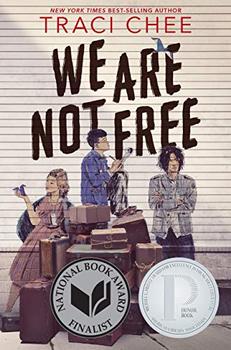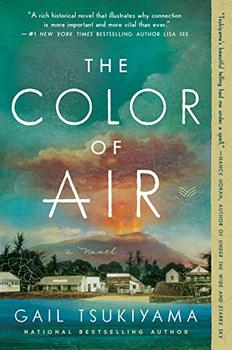Summary | Excerpt | Reading Guide | Reviews | Beyond the book | Read-Alikes | Genres & Themes | Author Bio

Critics' Opinion:
Readers' Opinion:
First Published:
Jan 2009, 304 pages
Paperback:
Oct 2009, 320 pages
 Book Reviewed by:
Book Reviewed by:
Kim Kovacs
Buy This Book
One of BookBrowse's Top 3 Favorite Books of 2009.
Set during one of the most conflicted and volatile times in American history - the internment of American-Japanese families during World War II - Jamie Ford has created an unforgettable duo whose story teaches us about forgiveness and the power of the human heart.
One of BookBrowse's Top 3 Favorite Books of 2009
In the opening pages of Jamie Ford’s stunning debut novel, Hotel on the Corner of Bitter and Sweet, Henry Lee comes upon a crowd gathered outside the Panama Hotel, once the gateway to Seattle’s Japantown. It has been boarded up for decades, but now the new owner has made an incredible discovery: the belongings of Japanese families, left when they were rounded up and sent to internment camps during World War II. As Henry looks on, the owner opens a Japanese parasol.
This simple act takes old Henry Lee back to the 1940s, at the height of the war, when young Henry’s world is a jumble of confusion and excitement, and to his father, who is obsessed with the war in China and having Henry grow up American. While “scholarshipping” at the exclusive Rainier Elementary, where the white kids ignore him, Henry meets Keiko Okabe, a young Japanese American student. Amid the chaos of blackouts, curfews, and FBI raids, Henry and Keiko forge a bond of friendship–and innocent love–that transcends the long-standing prejudices of their Old World ancestors. And after Keiko and her family are swept up in the evacuations to the internment camps, she and Henry are left only with the hope that the war will end, and that their promise to each other will be kept.
Forty years later, Henry Lee is certain that the parasol belonged to Keiko. In the hotel’s dark dusty basement he begins looking for signs of the Okabe family’s belongings and for a long-lost object whose value he cannot begin to measure. Now a widower, Henry is still trying to find his voice–words that might explain the actions of his nationalistic father; words that might bridge the gap between him and his modern, Chinese American son; words that might help him confront the choices he made many years ago.
Set during one of the most conflicted and volatile times in American history, Hotel on the Corner of Bitter and Sweet is an extraordinary story of commitment and enduring hope. In Henry and Keiko, Jamie Ford has created an unforgettable duo whose story teaches us of the power of forgiveness and the human heart.
A video tour through Hotel on the Corner of Bitter and Sweet
The Panama Hotel (1986)
Old Henry Lee stood transfixed by all the commotion at the Panama Hotel. What had started as a crowd of curious onlookers eyeballing a television news crew had now swollen into a polite mob of shoppers, tourists, and a few punk-looking street kids, all wondering what the big deal was. In the middle of the crowd stood Henry, shopping bags hanging at his side. He felt as if he were waking from a long forgotten dream. A dream he’d once had as a little boy.
The old Seattle landmark was a place he’d visited twice in his lifetime. First when he was only twelve years old, way back in 1942—“the war years” he liked to call them. Even then the old bachelor hotel had stood as a gateway between Seattle’s Chinatown and Nihonmachi, Japantown. Two outposts of an old-world conflict—where Chinese and Japanese immigrants rarely spoke to one another, while their American-born children often played kick the can in the streets together. The hotel...
An exceptionally well-written historical fiction novel with many complex themes intertwined throughout the narrative. Its multifaceted, well-paced plot is sure to put it at the top of many a book club's reading list, and it is likely to attract a wide audience. Highly recommended!..continued
Full Review
(585 words)
This review is available to non-members for a limited time. For full access,
become a member today.
(Reviewed by Kim Kovacs).
 Lisa See, author of Snow Flower and the Secret Fan.
Jamie Ford's first novel explores the age-old conflicts between father and son, the beauty and sadness of what happened to Japanese Americans in the Seattle area during World War II, and the depths and longing of deep-heart love. An impressive, bitter, and sweet debut."
Lisa See, author of Snow Flower and the Secret Fan.
Jamie Ford's first novel explores the age-old conflicts between father and son, the beauty and sadness of what happened to Japanese Americans in the Seattle area during World War II, and the depths and longing of deep-heart love. An impressive, bitter, and sweet debut."Japanese-Americans in World War II
People of Japanese descent were the victims of racial prejudice from the time
they first started to arrive in the USA, and USA-controlled Hawaii, in the mid
to late 19th century to work as laborers. By the early 1900s, some
Japanese immigrants had started to lease land and sharecrop - California reacted
by passing The Alien Land Law of 1913 which banned the purchase of land by
Japanese. A little over a decade later, the 1924 US Immigration Act banned
immigration from Japan.
By the start of World War II, anti-Japanese sentiment was high, particularly
among the farming and fishing communities competing with the Japanese for both
jobs and commerce. The panic and ...
This "beyond the book" feature is available to non-members for a limited time. Join today for full access.

If you liked Hotel on the Corner of Bitter and Sweet, try these:

by Traci Chee
Published 2022
"All around me, my friends are talking, joking, laughing. Outside is the camp, the barbed wire, the guard towers, the city, the country that hates us.
We are not free.
But we are not alone."

by Gail Tsukiyama
Published 2021
From the New York Times bestselling author of Women of the Silk and The Samurai's Garden comes a gorgeous and evocative historical novel about a Japanese-American family set against the backdrop of Hawai'i's sugar plantations.





The House on Biscayne Bay
by Chanel Cleeton
As death stalks a gothic mansion in Miami, the lives of two women intertwine as the past and present collide.

The Flower Sisters
by Michelle Collins Anderson
From the new Fannie Flagg of the Ozarks, a richly-woven story of family, forgiveness, and reinvention.

The Funeral Cryer by Wenyan Lu
Debut novelist Wenyan Lu brings us this witty yet profound story about one woman's midlife reawakening in contemporary rural China.
Your guide toexceptional books
BookBrowse seeks out and recommends the best in contemporary fiction and nonfiction—books that not only engage and entertain but also deepen our understanding of ourselves and the world around us.